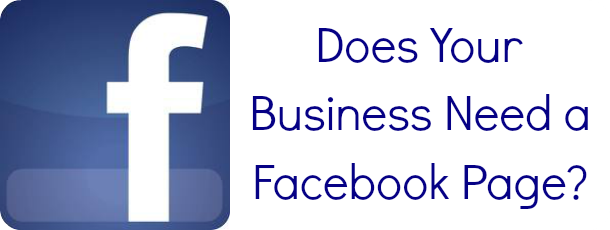By now, everyone knows that Facebook is the place to be online. Wherever you turn, you’ll find dozens of articles about what to post on Facebook, how to get more likes, and how to use paid ads to rock your business.
But let’s take a step back from all that. The truth is, you may not be a Facebook fan, especially when it comes to using it for your business.
So instead of asking how to use Facebook, let’s ask the more fundamental question: do you really need to be on Facebook for your business to succeed?
In a word: no.
No, you do not need to be on Facebook to succeed. Plenty of businesses are doing just fine without Facebook pages.
However, you do need some kind of communication link between you and your past, current, and future clients.
Communication is Key
Keeping in touch with your network is essential for two reasons. First, something like 90% of your clients will not purchase your product or service the first time they visit your website.
Second, it takes 5 – 20 touches before someone will take the action you want them to take. That means you need to touch a potential client 5 – 20 times before they actually become a client. That’s a lot of communication!
To put these facts into perspective, take a minute to think about your own buying habits. When was the last time you purchased a coaching session or product the very first time you visited a website? How many Facebook posts, Tweets, or emails did it take before you signed up for that free webinar? Your clients are making their decisions the same way you make yours.
How you communicate – email, Facebook, Twitter – matters less than the fact that you’re consistently talking to your potential (and current) clients.
Why Facebook?
With all the communication options out where, why do so many entrepreneurs and small businesses choose Facebook? Why not email lists, or Twitter, or some other method?
Facebook has a few advantages in the world of communication:
Name Recognition – Everyone knows what Facebook is and what it’s for. If you ask someone to “like” your Facebook page, they will know what that means. The same cannot be said of other social media sites (Twitter, Google+, Pinterest). Likewise, if you ask your blog readers to like your blog post, or share it on Facebook, they understand what to do without having to explain it.
Popularity – At the time of this post, Facebook is reporting almost 1 billion users. Even assuming that some of those users aren’t active, the odds are good that your potential clients are hanging out on Facebook. This means that you’re communicating with your potential clients through a channel that’s already in place. That’s way easier than trying to drum up Twitter followers or ask people to join your email list.
Less Intrusive Than Email – While emails are still the most effective form of communication, many of your potential clients will be wary of giving up their email address. By liking your Facebook page instead, they can still keep track of what’s going in your business without having to worry about spam or email inbox invasions.
Free – Setting up and posting to your Facebook page costs you nothing but time. For you, as for me, that’s a huge advantage when you’re starting a business on a very tight budget. And, once you get into the swing of your Facebook page, it shouldn’t take you more than 15-30 minutes a day. Dollar for dollar, and minute for minute, your Facebook page can be an extremely effective communication tool.
Do you really need a Facebook page?
Taking into account the importance of communication and the advantages of Facebook, let’s look at the fundamental question again.
Does your business really need a Facebook page?
You definitely need some sort of communication channel, but whether you opt to communicate through Facebook, an email list, Twitter, or a combination thereof is ultimately up to you.
Your Turn
What’s your favorite way to communicate with your network? Let me know in the comments below!
~ Felicity
[hana-code-insert name=’Felicity Fields Author Bio’ /]
 |
|



Leave a Reply